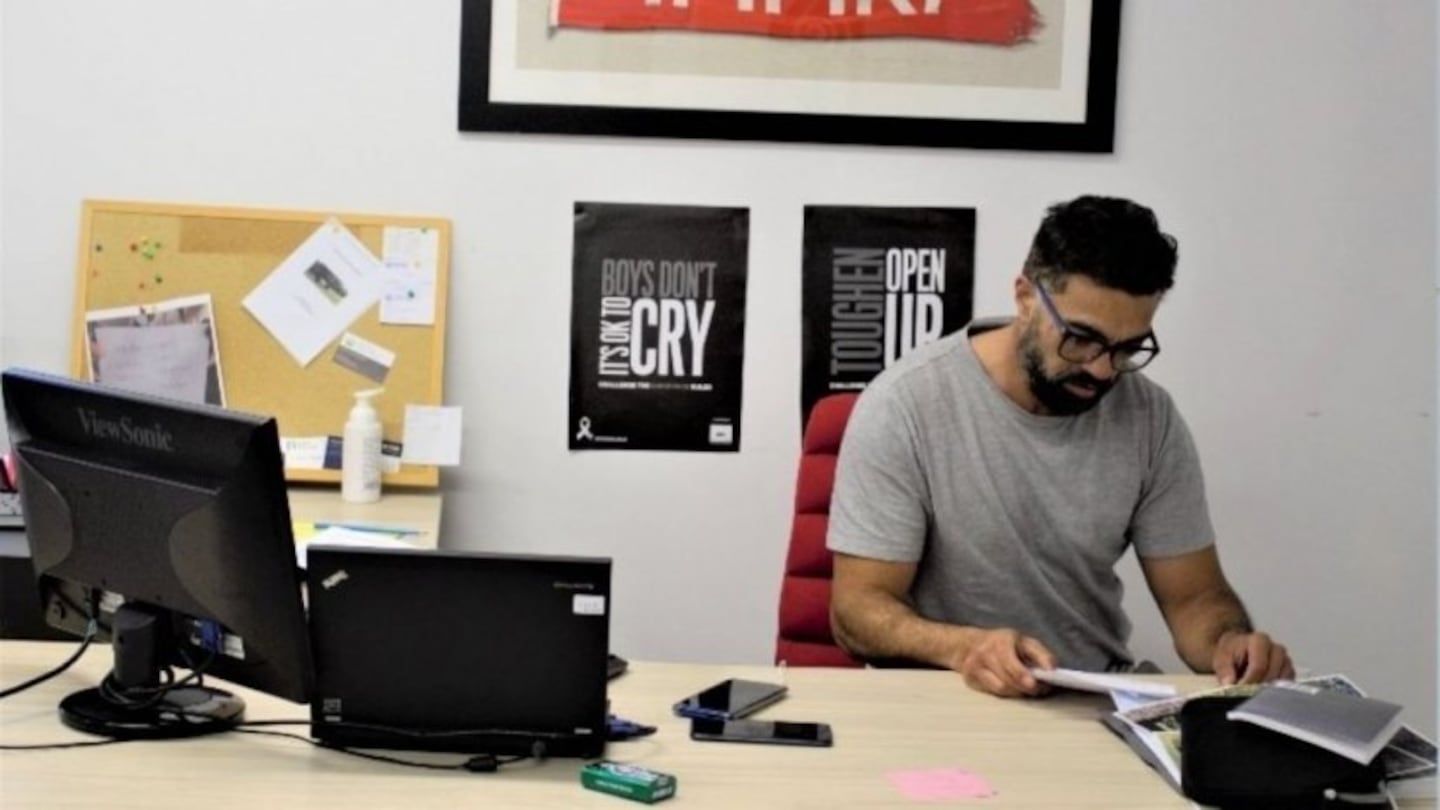Male community advocate Jason Matia. Photo / Supplied
Jason Matia (Te Aupōuri, Te Rārawa) is on a mission to combat the shame and stigma many men face when struggling with mental illness and trauma. He is both a victim and perpetrator of family violence and knows all too well how detrimental the mental impact of trauma can be for families if left untreated.
“I carried all the truths of abuse through life. I watched my father abuse mentally and physically abuse my mother and too was subject to this, in turn becoming a perpetrator of domestic violence myself. It was normal growing up and I ended up losing my family and access to my kids for two years. I had to prove I had changed and went to counselling for a year.”
His experience set him on the pathway to studying towards a Bachelor of Social Work and what he learned throughout his study inspired him to help support and stop other men making the same mistakes.
“When I started I had nowhere to live so I stayed in my car in Henderson and all I did was study. It’s a hard-hitting degree where you have to peel back a lot of layers of your own life. I realised I felt like I had no power growing up, but I took advantage of the power I had over my partner and that led to me hurting the people I love. I stopped blaming my father and forgave him and realise now I was a child being raised by a child.”
Matia believes restoring the mana of men is key and is thankful for the support he was given while studying, which kept him on track despite wanting to give up many times.
“Paula Bald-Wilson, my lecturers, all the staff really, they supported me and made sure I stayed focused. It’s taken nine years, but now my ex-partner and I are on amicable terms and she’s supportive of me seeing my kids. My long term goal is to set up a men's refuge centre where they can seek support and learn how to respect women and healthy ways to deal with what they’re struggling with.”
E hoki ki ō maunga kia purea koe e ngā hau e whā o Tāwhirimātea. Return to your mountain and be cleansed by the four winds of Tāwhirimātea.
Since graduating, Matia’s returned home to Te Taitokerau to work as a male community advocate with Mid North Family Support which has provided free services to whānau in the region for more than 30 years.
His manager, Doreen Rihari, says, “We knew we needed to create real change for men who use violence towards their partners or their children. Our particular focus was with men who have been victims of sexual or physical violence themselves. We wanted to know how to help them desist from violence and achieve healing and restoration of mana.”
Despite limited funding, the service allocated dedicated resource to supporting men and employed Matia as kaitautoko/community advocate – men. They have also engaged advice and guidance from experienced and respected kaitautoko - Matua Mikaera Korewha and Ken Levingsohn. David Cross, a registered DAPAANZ (addiction) practitioner has also joined their team of kaiwhiriwhiri/counsellors.
Matia knows all too well how important the services he is now contributing too are, and is thankful Mid North Family Support has created an opportunity for him and others to exact real change and make a true and meaningful difference.
“Men don’t know how to open themselves up to other men, they don’t know how to communicate and they bottle all this stuff inside because it's not manly and that's a huge thing for me. There’s a real poverty of mind and generational issues and it's hard to change that mindset.”
He and the dedicated whānau he works with are already making great strides. His first task was conducting an in-depth assessment of the availability and effectiveness of current services for men in the region.
“I have an unorthodox approach but needed to identify gaps in services and, in some cases, I went and asked for help myself and there was nothing. It was risky but it paid off and now we’re seeing a growth in understanding that these are essential support services.”
Matia fully understands the road to recovery is a never-ending journey and how important dedicated support is for everyone involved. He hopes his experience and his willingness to share it will help encourage more men to seek help when they need it.
“I’m thankful for what I’ve learned and I need more male Māori social work graduates to join us and support this mahi.”


